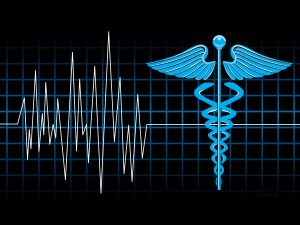by California Casualty | Nominate a Hero |
How to Vote for Steve
Voting is now Closed! Congrats to Steve for being Hero of the Month for April!
Be sure to read all our heroes’ stories here.

Some say Steve is just a ‘young pup” as a nurse, and still learning what an impact he has on others. Co-workers say that he takes great pride in teamwork and is the go-to man to help out. Patients of all ages seem to gravitate to his fun personality. He serves as a volunteer staff nurse for Camp Braveheart, a week long camp for YMCA for kids.
He also created and implemented the Friend Advocate Nurse Program, which helps pair a RN with each patient for support, creating a friendly safe connection for the patient. Friends say he often mentions that he wants to be more than average at things. They also say he is the type of person to always be there with staff growing and learning, keeping a positive spin and smiling brightening everyone’s day.
by California Casualty | Nominate a Hero |
How to Vote for John
Voting is now Closed! Thanks to all who shared and posted below. Be sure to stay tuned for our upcoming April Finalists.
Be sure to read all our heroes’ stories here.
Capt. John Boesman is a 21 year veteran with the Prince George County Police Department. On March 18, 2013, in the early afternoon Boesman came across a vehicle accident soon after it had occurred. Boesman observed that a mid size SUV was on it’s side. It’s driver trapped, but conscious and the rear of the SUV on fire. The accident reconstruction investigation revealed that SUV driver, the sole occupant had suffer a medical emergency. The driver lost control of the vehicle, striking a curb, which caused the SUV to flip onto its drivers side. The vehicle continued to slide approximately 25 yards down the roadway, damaging the fuel tank. Boesman using his issued service baton was able to break a small hole in the windshield. With the combination of baton strikes, kicking in the windshield and eventually tearing the hole in the windshield with bare hands and, assisted by a good samarian citizen, broke and tore a hole big enough in the front windshield to reach into the cab of the SUV.
While attempting to free the driver who was pinned in the driver’s seat, two back up officers assisted in the rescue attempt. After several minutes of struggling to free with a now unresponsive driver, excessive heat, the vehicle nearly completely engulfed in flames and smoke any further rescue attempt was futile. Boesman suffered second degree burns to his hands and the right side of his face and several lacerations to his hands. Boesman was transported to the hospital for his injuries, admitted and was released from the hospital the following afternoon. Boesman was unable to return to full duty for approximately 3 weeks. In January 2014 Lt. Boesman was promoted to Captain.
by California Casualty | Safety |
The National Weather Service is describing the ice storm tightening a frozen grip on the southeastern part of the US with words like: Catastrophic, crippling and an even of historical proportions.
Unlike blizzards, ice storms present unique problems that require special preparations.
For your safety, we have excerpted an article from ehow.com on ice storm preparation.
Instructions
Place a winter emergency kit in your car. There are going to be times when a winter ice storm will hit when you are away from the house. Unfortunately, most employers will not let you call out because the weatherman is calling for a winter ice storm. Your winter emergency kit will help you to get home in one piece no matter what you encounter.
Collect all of your flashlights and candles together and make sure that everything is working correctly before the winter ice storm hits. Winter ice storms have been notorious for knocking out power to millions with the weight of the ice on power lines. Do not be left in the dark during the winter ice storm.
Keep your pantry stocked with food that you can eat with out having to cook it. If you lose power during a winter ice storm, you want to make sure that you can still eat. You can also make sure you have all the usual food necessities in case you still have power but are stuck in the house for a few days due to the winter ice storm.
Tips & Warnings
- Try to prepare for a winter ice storm as far in advance as you can. This will keep you home and safe as the storm is on the way.
Read more: ehow.com
Here are some safe driving tips if you encounter ice:
Driving safely on icy roads
- Decrease your speed and leave yourself plenty of room to stop. You should allow at least three times more space than usual between you and the car in front of you.
- Brake gently to avoid skidding. If your wheels start to lock up, ease off the brake.
- Turn on your lights to increase your visibility to other motorists.
- Keep your lights and windshield clean.
- Use low gears to keep traction, especially on hills.
- Don’t use cruise control or overdrive on icy roads.
- Be especially careful on bridges, overpasses and infrequently traveled roads, which will freeze first. Even at temperatures above freezing, if the conditions are wet, you might encounter ice in shady areas or on exposed roadways like bridges.
- Don’t pass snow plows and sanding trucks. The drivers have limited visibility, and you’re likely to find the road in front of them worse than the road behind.
- Don’t assume your vehicle can handle all conditions. Even four-wheel and front-wheel drive vehicles can encounter trouble on winter roads.
If your rear wheels skid…
- Take your foot off the accelerator.
- Steer in the direction you want the front wheels to go. If your rear wheels are sliding left, steer left. If they’re sliding right, steer right.
- If your rear wheels start sliding the other way as you recover, ease the steering wheel toward that side. You might have to steer left and right a few times to get your vehicle completely under control.
- If you have standard brakes, pump them gently.
- If you have anti-lock brakes (ABS), do not pump the brakes. Apply steady pressure to the brakes. You will feel the brakes pulse — this is normal.
If your front wheels skid…
- Take your foot off the gas and shift to neutral, but don’t try to steer immediately.
- As the wheels skid sideways, they will slow the vehicle and traction will return. As it does, steer in the direction you want to go. Then put the transmission in “drive” or release the clutch, and accelerate gently.
by California Casualty | Firefighters |

Technological advancements have made streamlining processes and optimizing operations possible universally, with the impact affecting the largest corporations all the way down to our daily lives. One area where the application of the latest technology is evident is in public safety, and in particular the help it provides first responders. Here’s a look at the benefits that technology provides for emergency responders — from greater intelligence to better communications.
Personnel Management and Automatic Vehicle Location Systems
Personnel systems and Automatic Vehicle Location (AVL) systems give first responders an instantaneous view of their personnel, vehicles and medical equipment. Through the use of technology, a real-time status of the entire operation allows first responders to track down equipment, make decisions on dispatching personnel and know immediately if any areas are understaffed.
Intelligence and Computer-Aided Dispatch
A main theme behind the implementation of technology in the vehicles and dispatch offices of EMTs and first responders is eliminating paperwork. When first responders are bogged down in paperwork, they cannot properly focus on their efforts to provide response to emergencies quickly and effectively. Computer-Aided Dispatch (CAD) systems digitize the act of managing incidents, allowing individuals to enter them into a management system from dispatch or from vehicle-mounted computers.
Within this system, there is a running account of what’s happening, enabling quick decisions. This data can also be pushed into a records management system (RMS). With an archive of events, CAD systems can run reports and first responders can leverage the intelligence gleaned for a more effective response strategy in the future.
Electronic Patient Care Reporting
Electronic Patient Care Reporting (ePCR) is a reporting and filing system for first responders for managing the medical side of the operation, rather than the logistical side. No longer do emergency personnel have to worry about misplacing or throwing out important medical records. These systems are also more secure than a paper filing system and allow personnel to quickly file reports and return to work immediately.
Mass Notification Systems
The prevalence of cell phones and social media have given first responders an advantage when it comes to receiving calls, including civilian distress applications. Civilian distress applications can be downloaded onto a smartphone, and used to notify the public, law enforcement, or medical personnel of an event. Early responders can utilize these apps like they are accepting 911 calls. By doing so, they stand to reduce call qualification time by using GPS to pinpoint exactly where the distress call is coming from. The caller’s identity can also be determined, further reducing time to intervention.
Cell phone prevalence also brings with it social media, as many smartphone owners regularly use their favorite social media apps on their phones. Monitoring social media can give early responders information on events, enabling the proper planning and decision-making on the go. Additionally, social media acts as a useful platform for public safety announcements.
Technology in the right hands is a wonderful thing, and it’s even better when technology is put to good use. With advances in technology in public health, first responders are leveraging their intelligence and improving communications, which is leading to better response and, overall, more lives saved.
Author Bio:
Cheryl Bikowski is Marketing Communications Supervisor of Gamber-Johnson in Stevens Point, WI. Gamber-Johnson is a leading supplier of vehicle docking stations and vehicle computer mounts and is a member of the Leggett & Platt Commercial Vehicle Products (CVP) Group.
by California Casualty | Peace Officers |
With the polar vortex still roaring across the country, everyone is frantically doing their part to keep warm and safe. Abbye spent over a year writing about heroes for California Casualty, and recently had the opportunity to experience how some peace officers are willing to go above the call firsthand. This is the story in her words:
On the evening of January 6, the windchill in Ann Arbor, Michigan was around negative 35 degrees. The roads were frozen and icy as I got on Highway 94 headed to the airport. It was around 11 PM and pitch black out. Not 20 minutes into my drive, I hit a patch of black ice and crashed my truck head-on into a highway median. I quickly called 911 and about five minutes later, a Michigan State Trooper named Anthony Young arrived on the scene. Given the horrible road conditions, the inclement weather, and the exceptionally cold temperatures, I’m sure Trooper Young had a long night before he was dispatched to the scene of my accident. But you’d never guess from his demeanor. Upon arrival, he made sure I was okay and even asked about my dog- who had been in the car with me. I have never been in that serious of an accident and I was pretty shaken up and scared. Young was patient, calm and reassuring. I had hit a median and was stuck on the left side of the highway, but Young kept his lights on behind me to alert other motorists and keep me safe from another collision.

Shortly after a tow truck arrived on the scene, the driver inadvertently let my very frightened dog out of the car. My dog, Seamus, immediately took off, sprinting along the center median down the highway. I took off after him. Acting quickly, Trooper Young immediately followed alongside Seamus with his lights on, preventing him from crossing traffic and getting hit by oncoming traffic. Young even tried to cut off Seamus’ run by blocking him between the median and his vehicle, but Seamus hopped over the hood of his car, crossed west-bound traffic and ran off into the woods.
Trooper Young had already written his accident report and I’m sure he could’ve left the scene, or even told me I had to abandon my search for my own safety and his. Instead, Young got out his flashlight and started to help me look for my lost dog. His partner arrived on the scene, and the two troopers, the tow truck driver and I all walked the edge of the woods, calling for Seamus. Admittedly, I was a bit hysterical. I had just totaled my car and now I had lost my dog. Young remained completely calm and never once suggested we abandon the search.
It was Trooper Young who eventually located the spot where Seamus had entered the woods. He then used his flashlight to light the way as I followed Seamus’ trail. The windchill on Monday was around -35 degrees and there was at least two feet of snow on the ground, but Young didn’t give up. He stayed right behind me, trumping through the snow, until we found my freezing, terrified dog. By then, we were miles from the original crash site. When we found Shae, Young just laughed, patting him on the head and commenting on how much he must like a good evening run. I thanked him repeatedly for saving my dog, to which he humbly laughed and said I was lucky to have found the troopers (him and his partner) who were dog lovers.
Lucky is an understatement. I know it may seem like a little thing, helping some hysterical woman find her lost dog, but if you happen to be a dog owner, I’m sure you can appreciate what it would be like to total your car and then lose your dog. I had recently changed Seamus’ collar and knew his new one was without ID. It was dangerously cold and he had just been in a serious car accident, so I was sure he would be in serious trouble if we didn’t find him that night. I just recently moved to Michigan for school and Seamus is the only ‘family’ I have here. Losing him would have been devastating.



